
© Filmstill Wild Coast Warriors

© Filmstill Wild Coast Warriors
Welcome to Dokumentale, where films become a gateway to discovery, discussion, and deeper understanding. Bring your class to the cinemas and pay only 4€ per student - free entry for teachers!
Designed for students from 7th grade onward, our selection of international documentaries seamlessly integrates into your curriculum. Students explore complex subjects through real stories, gaining insights into past and present challenges. Post-screening discussions encourage them to analyze, reflect, and debate the themes raised in each film, making learning interactive and thought-provoking.
This year’s selection includes films that shed light on history, identity, activism, and science in surprising ways. We have just released the first documentary highlights of this year’s programme - but there are many more documentaries for you and your class to watch, we will share more of our programme shortly!
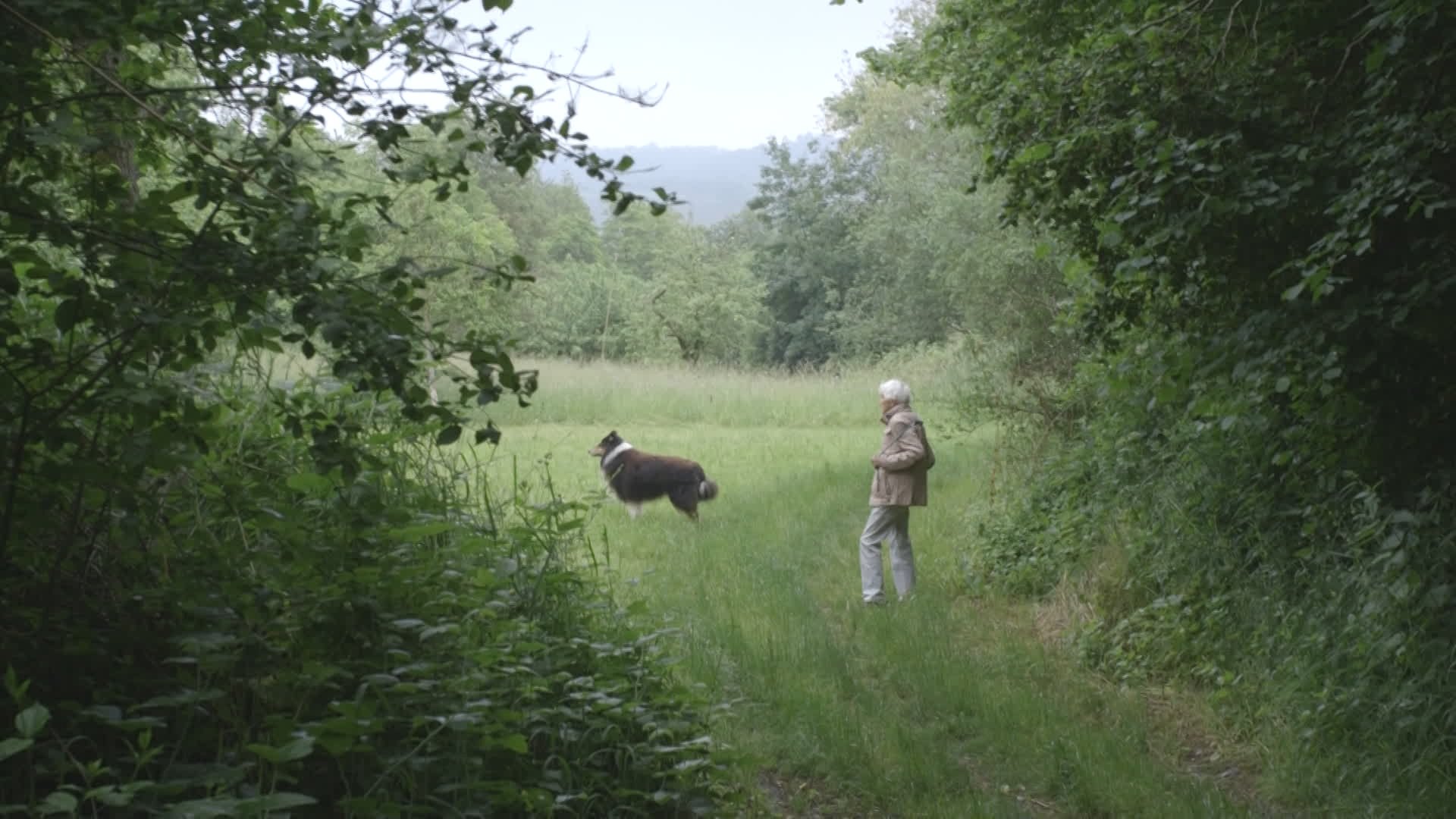
Recommended for: Grade 8 and above
Subjects: History, Politics, German, Ethics, Religion
Curriculum relevance: National Socialism, Culture of Remembrance, Identity Formation
German/English with English or German Subtitles
Application in the classroom:
This film is excellent for introducing or deepening discussions on National Socialism and the Holocaust—whether as a stimulus before a memorial site visit or within a lesson series on remembrance culture. The personal family story provides an emotional approach, making it suitable for reflective discussions, writing assignments (e.g., diary entries or fictional letters), and engagement with moral questions. It can also be used in cross-disciplinary lessons with German or Religion.
Wendi lives with her daughter and granddaughter on a tranquil estate, yet they bear a heavy legacy. During World War II, the estate was the site of a concentration camp, and its former owner was Wendi's uncle—Hitler’s first foreign minister, an SS officer, and family patriarch. Wendi and her mother used their privilege to ease the suffering of prisoners whenever they could. This film delves into themes of guilt, responsibility, memory, and repression as the three women confront their past to shape a more conscious future.
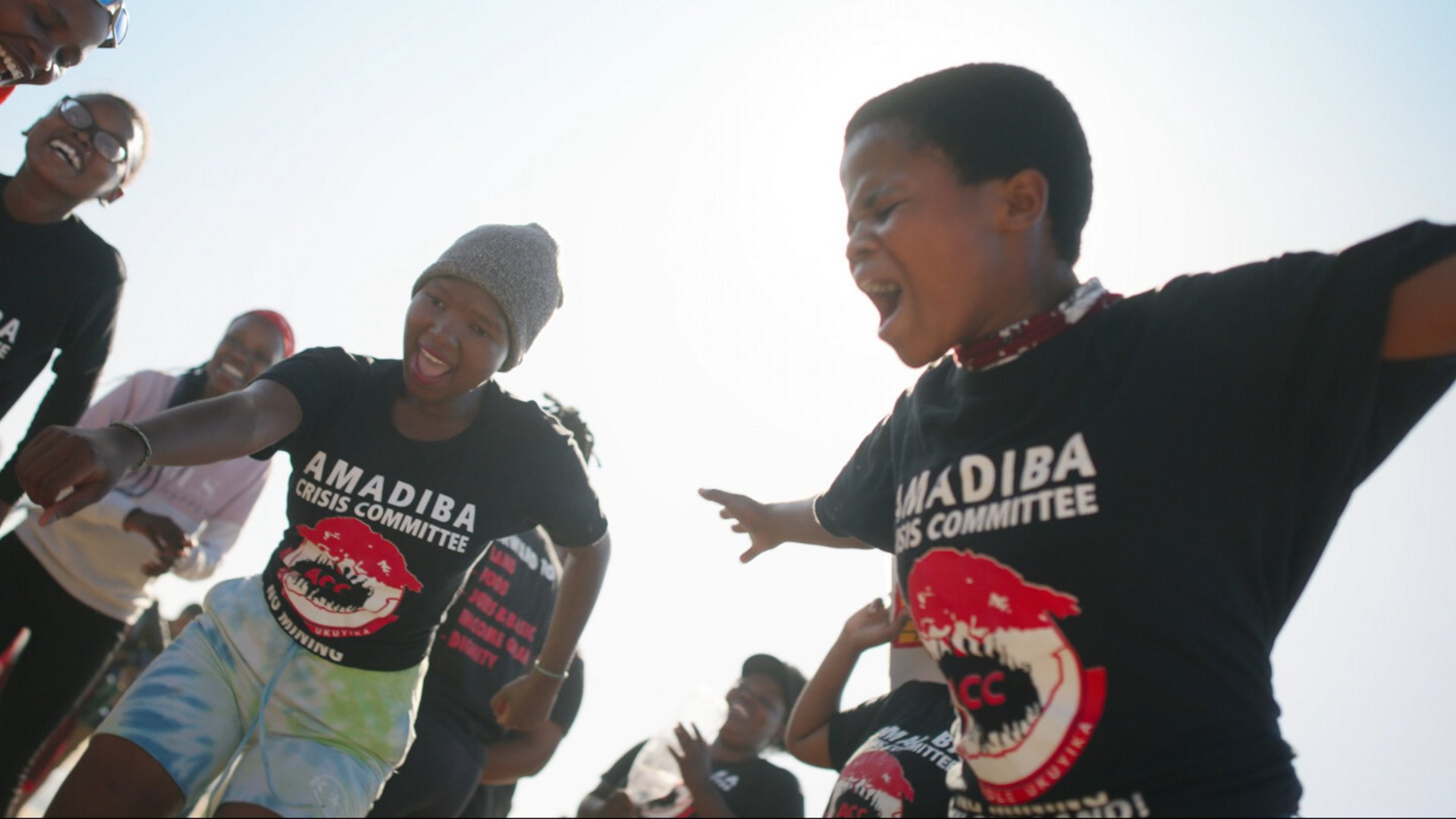
Recommended for: Grade 7 and above
Subjects: Geography, Politics/Economics, Biology, Ethics
Curriculum relevance: Sustainability, Globalization, Environmental Responsibility
Original with English or German Subtitles
Application in the classroom:
The film provides an authentic basis for discussing environmental conflicts, corporate responsibility, and Indigenous rights. Teachers can incorporate it into units on sustainability or globalization. Suggested methods include group work analyzing different stakeholders (oil company, local population, government) or a debate on the question: “Who owns nature?” It is also suitable as an introduction to project weeks on environmental topics.
Profit-driven destruction is threatening South Africa’s West Coast, with devastating effects on livelihoods and the environment. Yet, the AmaMpondo, an indigenous community from South Africa, stands resolutely against oil giant Shell to preserve their lands and their future. Their resistance is more than a protest—it is a fight for the survival of their culture. For them, the sea is not just a resource but a spiritual bond to their ancestors, deeply woven into their identity. This film is a powerful tribute to a community that stands firm, defending their homeland, identity, and culture.
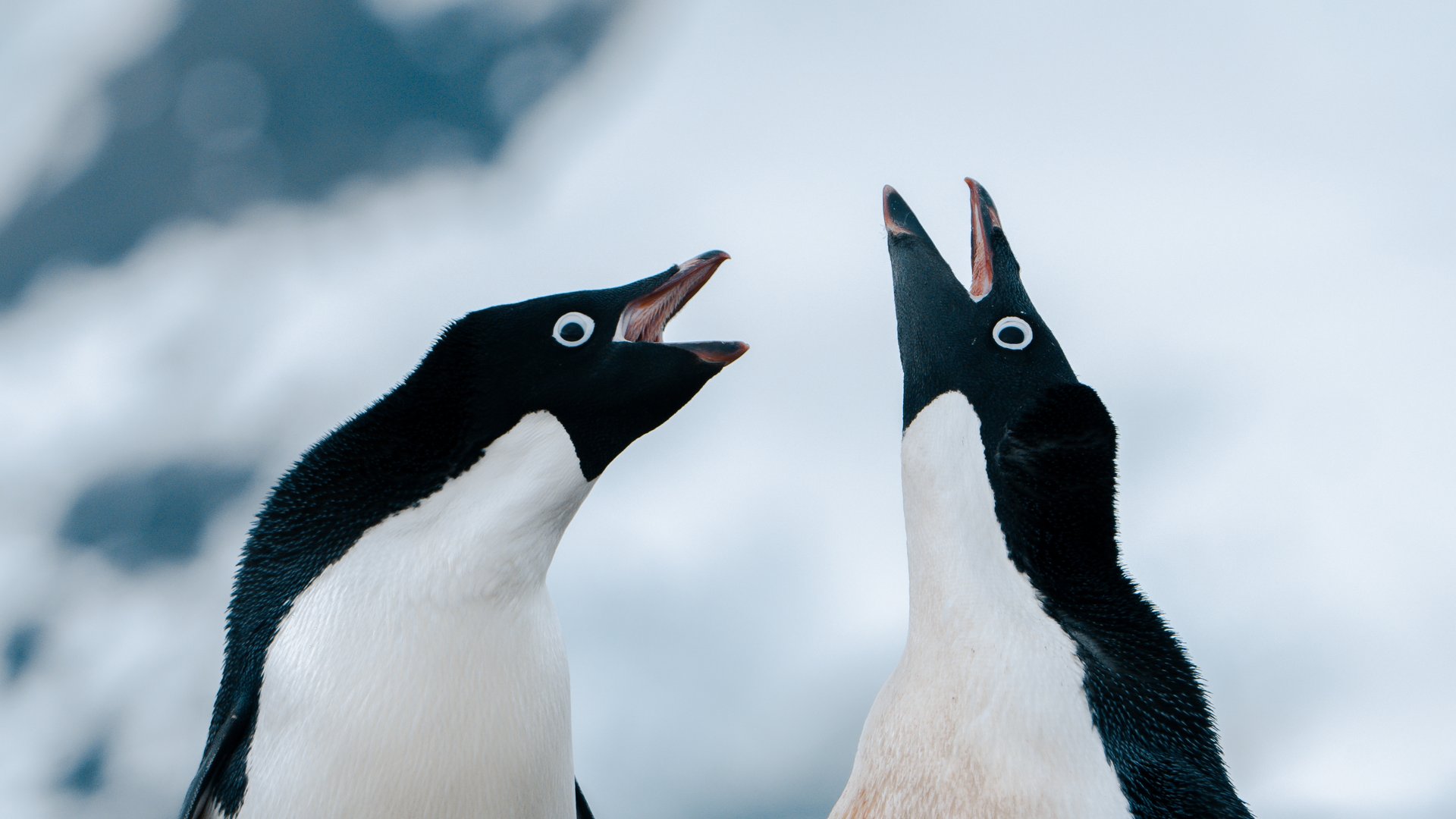
Recommended for: Grade 4 and above
Subjects: Biology, Ethics, General Studies, English
Curriculum relevance: Diversity in Nature, Acceptance, Life Forms
English with English or German Subtitles
Classroom Use:
This film is an ideal conversation starter about diversity in the animal kingdom—told in an age-appropriate and humorous way. It can be supplemented with simple observation tasks, drawing activities, or animal fact sheets. For older students, the topic of "diverse ways of life" can be linked to societal discussions (e.g., norms and acceptance). In English lessons, the original audio can be used for listening comprehension exercises.
While researching orca behavior, Connel Bradwell becomes captivated by the complex and often misunderstood homosexual behavior of the animal kingdom. With passion and wit, he dives into nature’s queer side, exploring the stories of penguins, seabirds, and even slugs, showing that queerness is far more natural than traditional science would have us believe. Through this lens, he dismantles the heteronormative walls in scientific understanding, presenting a vibrant, inclusive view of the animal world.
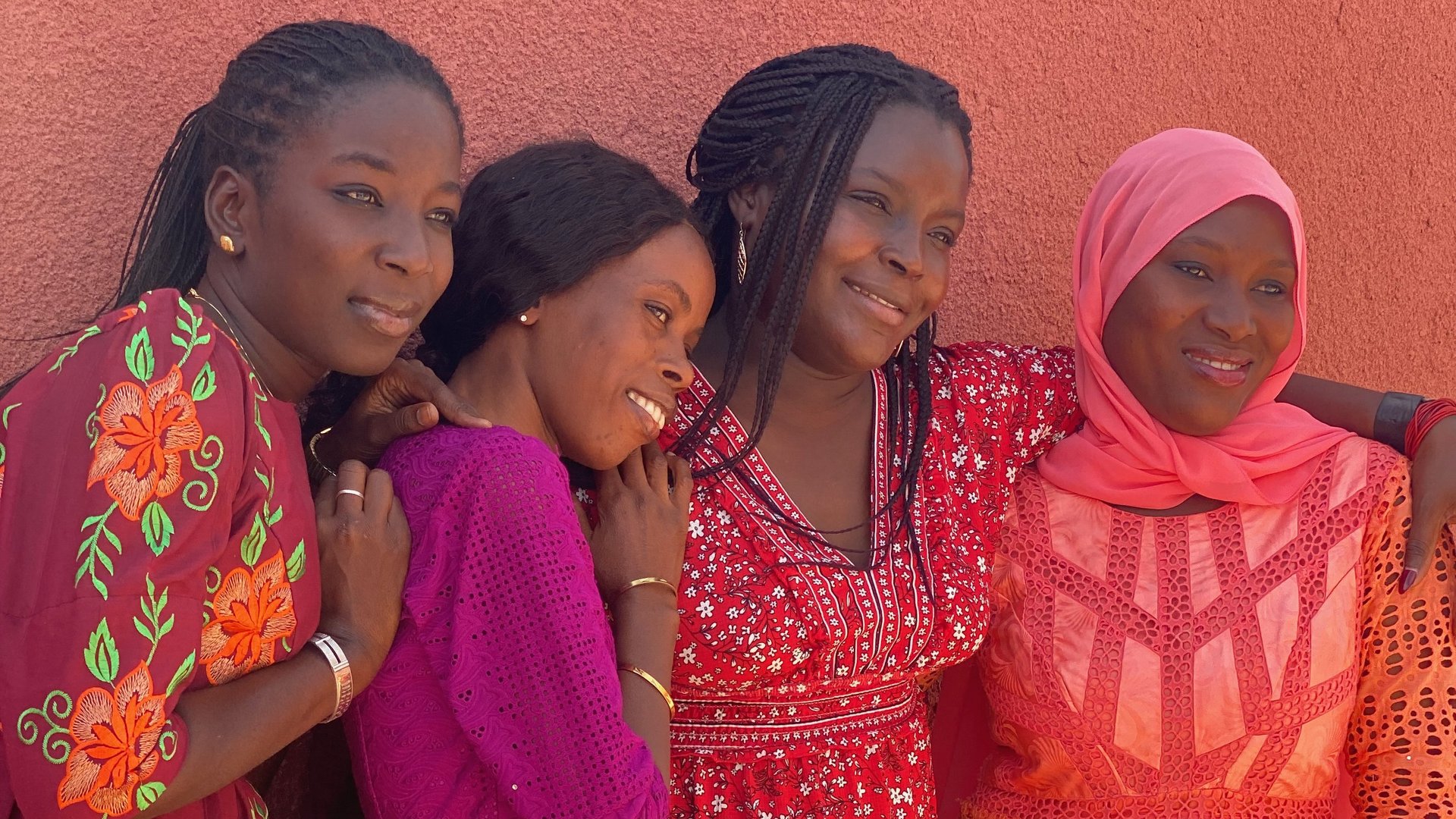
Recommended for: Grade 5 and above
Subjects: Geography, Social Studies, Economics, Ethics
Curriculum relevance: Poverty, Gender Equality, Entrepreneurial Thinking
Original with English or German Subtitles
Classroom Use:
The film presents real-life stories from Peru, Sri Lanka, and Senegal, making it suitable for exploring global inequalities and empowerment. Teachers can use it to introduce topics like the United Nations’ Sustainable Development Goals (SDGs). Ideal for group work: each group analyzes one protagonist and examines how she overcomes challenges. Additional activities could include students developing their own mini-business ideas or creating a ‘Gallery of Heroines.’
Three women take matters into their own hands when they establish their own businesses in Peru, Sri Lanka, and Senegal, shaping their futures with bravery. Gladys Yupanqui from Peru runs a minimart, Magatte Wade from Senegal starts a cosmetics factory, and Selyna Peiris from Sri Lanka takes over her mother’s textile business. Laws in nearly a third of the world’s countries prevent women from equal access to work—with devastating effects on poverty rates. This documentary captures how local entrepreneurship creates livelihoods and brings about lasting change.
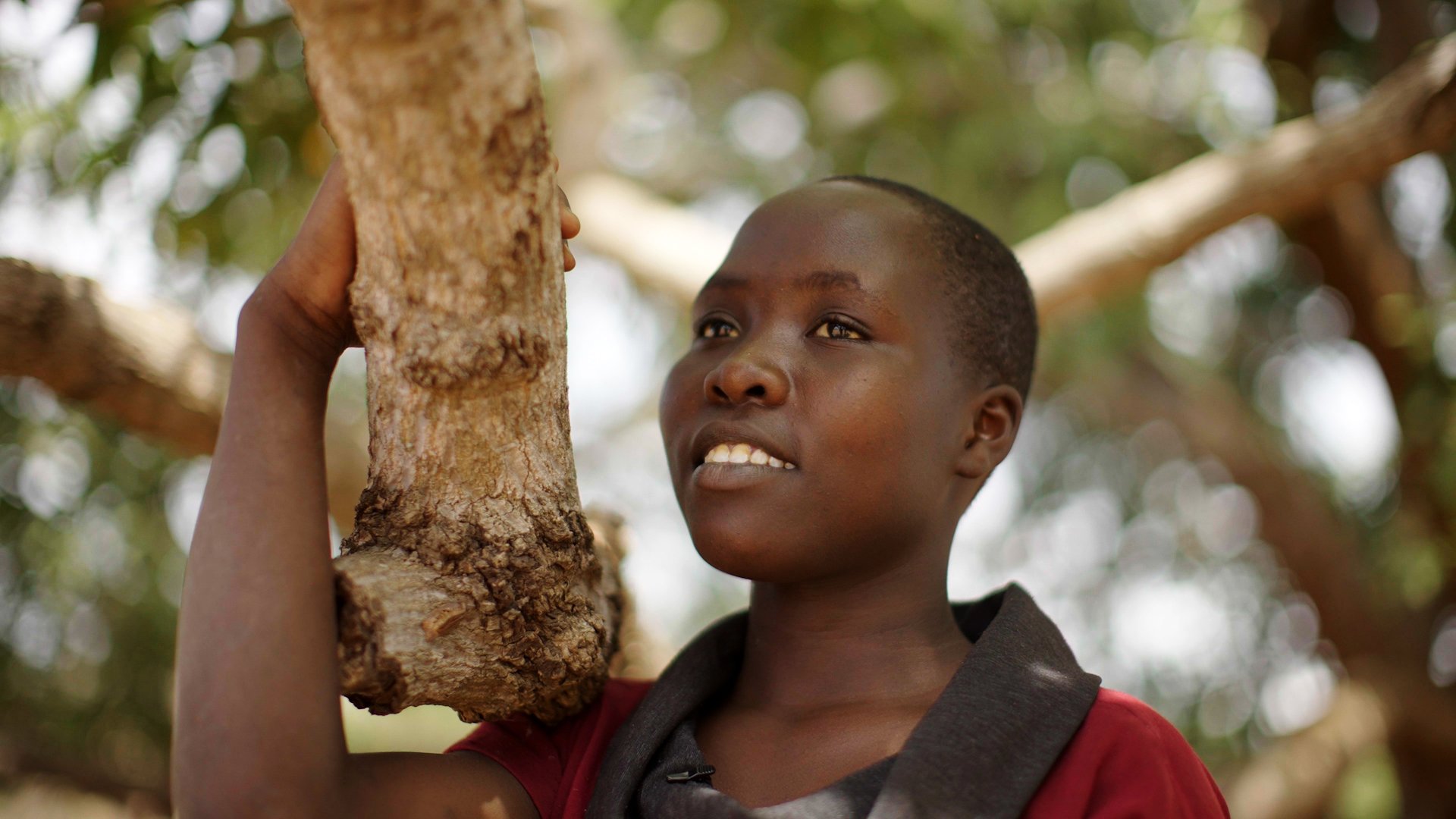
Recommended for: Grade 4 and above
Subjects: Ethics, General Studies, Geography, Religion
Curriculum relevance: Family, Climate, Children’s Lives Around the World
Original with German or English Subtitles
Application in the classroom
This film is perfect for encouraging perspective-taking in the classroom: How does a child live in Kenya? How does climate change affect daily life? Teachers can create a lesson where students discover similarities and differences compared to their own lives. Suggested methods: creating character profiles, pen-pal projects, or creative tasks like "A Day in the Life of Grace". The film promotes empathy and global awareness.
Thirteen-year-old Grace lives with her eight siblings on a small farm in Kenya. They live off the land, but as the drought worsens, her father faces the painful choice of having to leave his family to find work in the city. The rain, once a blessing, becomes a destructive force, and a storm devastates their home. Yet, even in the darkest of times, Grace’s laughter and infectious positivity keep her family’s hope alive. A powerful story about resilience, the healing power of humour, and a girl who won’t stop fighting for her dreams.
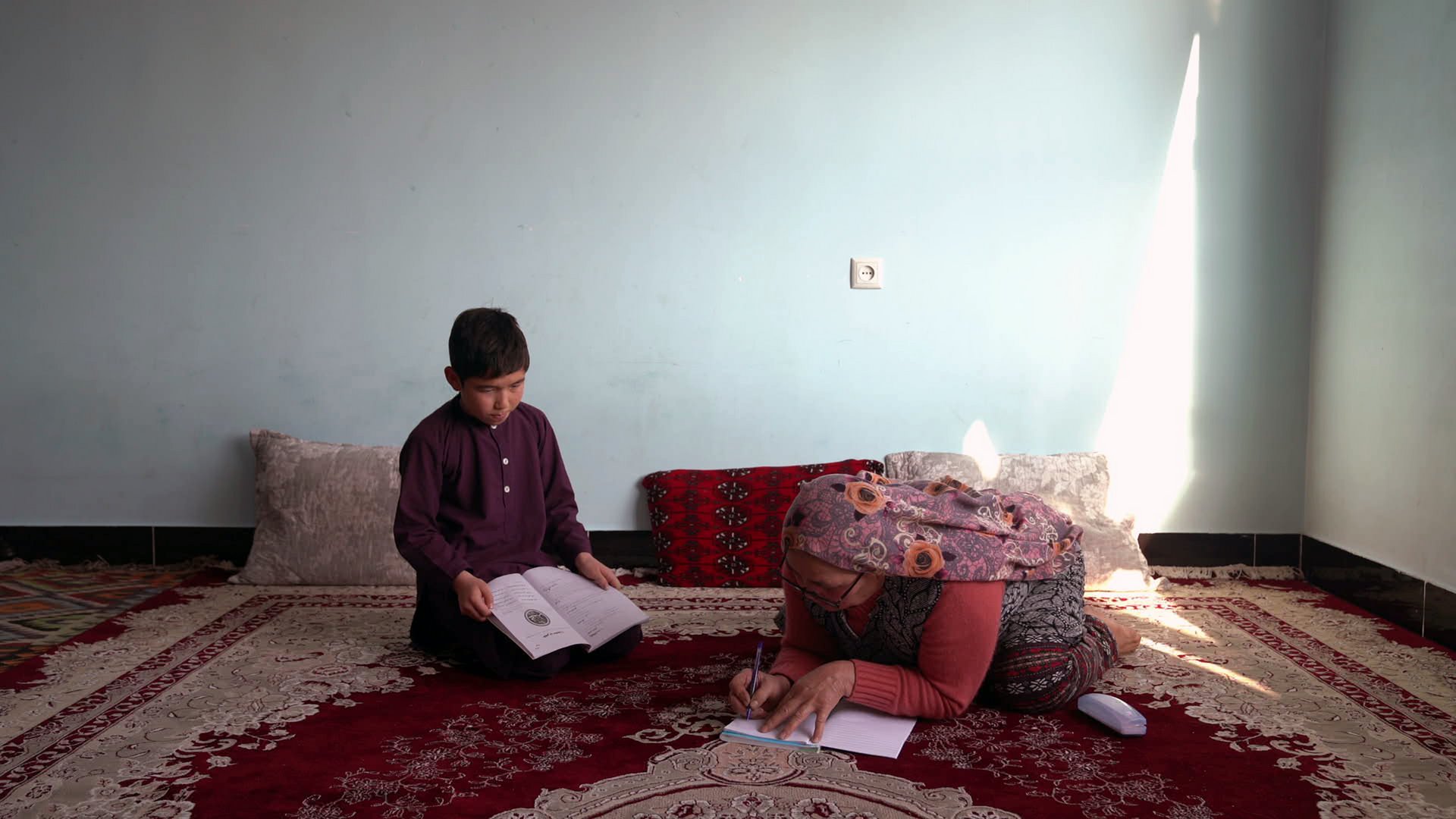
Recommended for: Grade 8 and above
Subjects: Politics, History, Ethics, Social Studies, German
Curriculum relevance: Human Rights, Women’s Rights, Political Systems
Original with English Subtitles
Application in the classroom:
A powerful film for discussions on women’s rights, education, and displacement. Teachers can use it in Politics or Social Studies to illustrate authoritarian systems or as an entry point into exploring personal biographies. In German lessons, it is suitable for analyzing documentary storytelling techniques or writing assignments such as letters to the editor, perspective texts, or opinion pieces. Also relevant for projects on Afghanistan, migration, or gender roles.
A documentary love letter from Afghan director Najiba Noori to her mother, Hawa. All her life, Hawa has been fighting for her children to have a liberated future, even learning to read and write with the help of her grandchildren. When the Taliban seize power again in 2021, Hawa’s dream of owning her own business is crushed in an instant. Within minutes, Najiba must decide whether to leave the country, while her daughter has to flee to escape a forced marriage. A film about three generations of women fighting for their freedom.
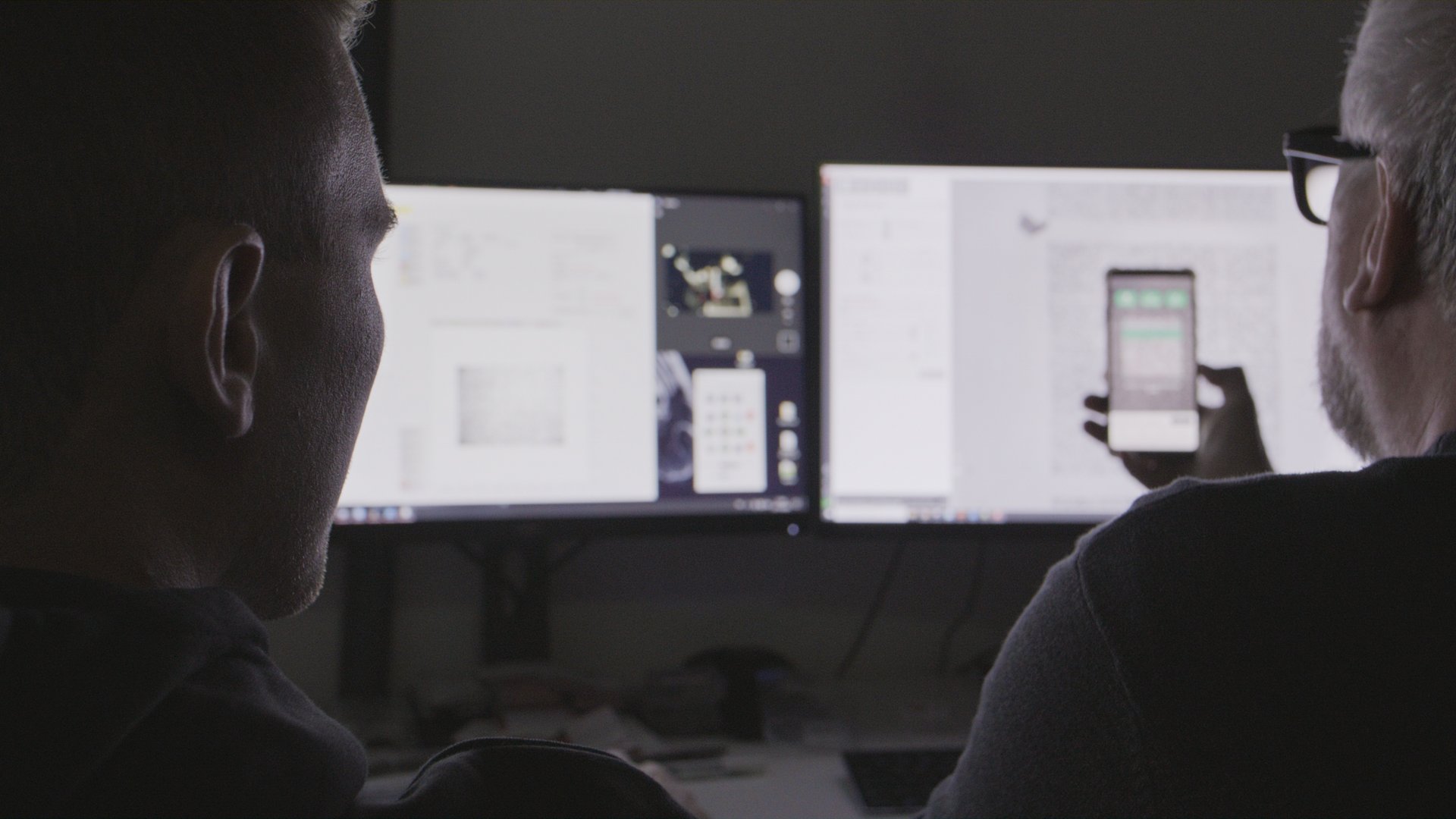
Recommended for: Grade 9 and above
Subjects: Politics/Economics, Ethics, Social Sciences, Media Studies
Curriculum links: Democracy education, media literacy, opinion formation, dealing with fake news
German/English with German or English Subtitles
Application in the classroom:
The film is an excellent resource for exploring the mechanisms of disinformation and propaganda in the digital age. It provides a vivid foundation for discussing media literacy, critical thinking, and the importance of independent information in democratic societies. Teachers can integrate the film into lessons on political opinion-building, conspiracy theories, or the ethics of the digital world. Methodologically, students can analyze the deceptive strategies shown in the film or engage in a debate on the question, 'How can we recognize the truth in a world full of misinformation?' The film is also well-suited as an introduction to project weeks on democracy or media education.
How can we know what’s true? In an age where fake news increasingly shapes our perception of the world, a team of experts from tech, journalism, and neuroscience reveals how disinformation, conspiracies, and propaganda distort reality. Their personal journeys take us deep into the darker corners of the human mind, where lies and conspiracy theories become dangerous weapons. A gripping film about the power of truth – and those who fight for it in a world full of deception.